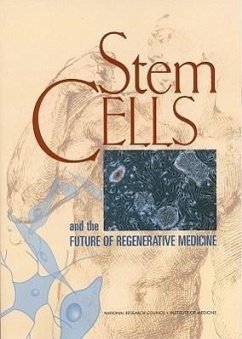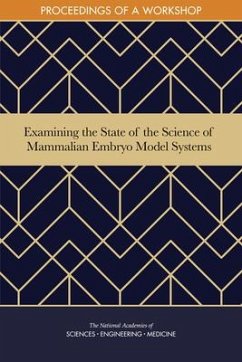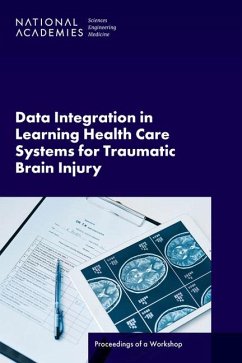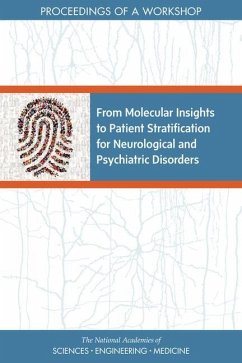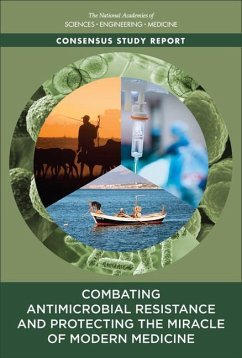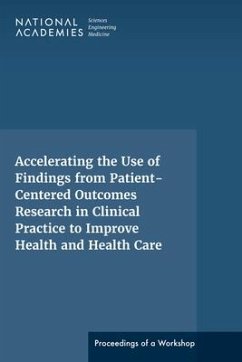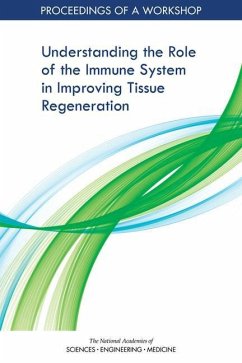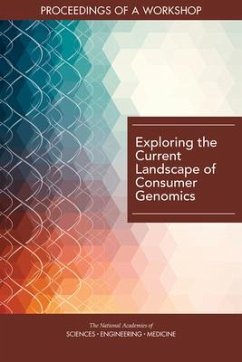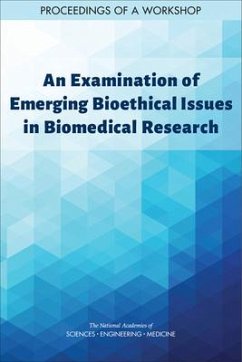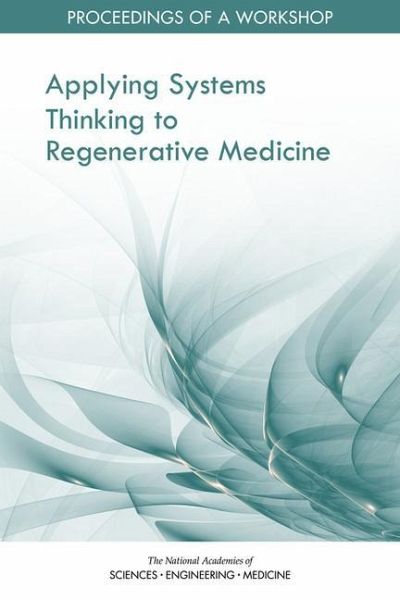
Applying Systems Thinking to Regenerative Medicine
Proceedings of a Workshop
Mitwirkender: Beachy, Sarah H; Addie, Siobhan; Hackmann, Meredith; Teferra, Lydia; Nicholson, Anna
Versandkostenfrei!
Versandfertig in über 4 Wochen
38,99 €
inkl. MwSt.

PAYBACK Punkte
19 °P sammeln!
Regenerative medicine products, which are intended to repair or replace damaged cells or tissues in the body, include a range of therapeutic approaches such as cell- and gene-based therapies, engineered tissues, and non-biologic constructs. The current approach to characterizing the quality of a regenerative medicine product and the manufacturing process often involves measuring as many endpoints as possible, but this approach has proved to be inadequate and unsustainable. The Forum on Regenerative Medicine of the National Academies of Sciences, Engineering, and Medicine convened experts acros...
Regenerative medicine products, which are intended to repair or replace damaged cells or tissues in the body, include a range of therapeutic approaches such as cell- and gene-based therapies, engineered tissues, and non-biologic constructs. The current approach to characterizing the quality of a regenerative medicine product and the manufacturing process often involves measuring as many endpoints as possible, but this approach has proved to be inadequate and unsustainable. The Forum on Regenerative Medicine of the National Academies of Sciences, Engineering, and Medicine convened experts across disciplines for a 2-day virtual public workshop to explore systems thinking approaches and how they may be applied to support the identification of relevant quality attributes that can help in the optimization of manufacturing and streamline regulatory processes for regenerative medicine. A broad array of stakeholders, including data scientists, physical scientists, industry researchers, regulatory officials, clinicians, and patient representatives, discussed new advances in data acquisition, data analysis and theoretical frameworks, and how systems approaches can be applied to the development of regenerative medicine products that can address the unmet needs of patients. This publication summarizes the presentation and discussion of the workshop.



